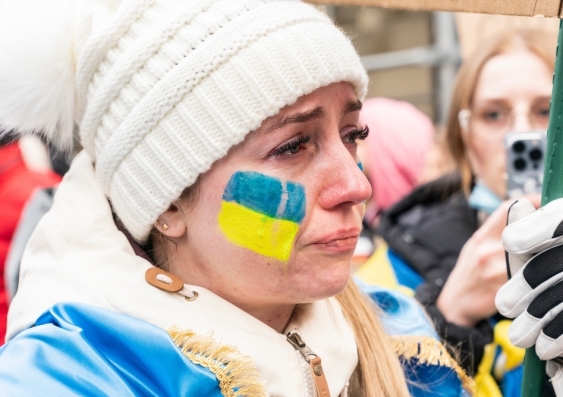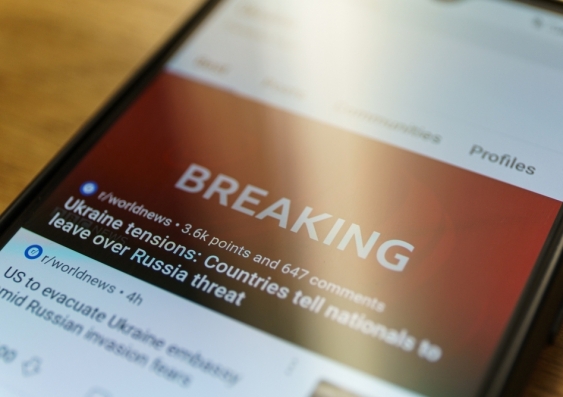Are you feeling anxious about the Ukraine crisis?
These mental health tips may help ease the unrest you might be feeling right now.
These mental health tips may help ease the unrest you might be feeling right now.

Emi Berry
Corporate Communications
0413 803 873
e.berry@unsw.edu.au
The threat of global conflict is understandably alarming and on top of the anxiety and uncertainty we have endured for the last two years with the COVID-19 pandemic, it’s not surprising that many of us are feeling overwhelmed with the distressing news coming out of Europe.
However, it’s important to acknowledge that these feelings of anxiety and unrest are completely normal in times of crisis and there are practical ways to help ease these feelings. Some people may be more seriously impacted and might need to seek professional support.
“We now have compounding forms of trauma impacting us as a general population, with those who have experienced prior trauma more likely to experience severe anxiety or distress,” says Professor Susan Rees from the School of Clinical Medicine at UNSW Sydney.
“There are few periods in our living memory where we have experienced this conflation of major stressors, including bushfires and floods associated with climate change, the pandemic, and now war.”
Read more: Is international law powerless against Russian aggression in Ukraine? No, but it's complicated
Prof. Rees, a mental health researcher with a background in trauma and conflict-affected populations says individuals from Ukraine will understandably be feeling highly emotionally aroused, anxious, and distressed, especially if they have family living in the country. They may also feel anger or frustration that not enough is being done to address the situation.
Prof. Rees adds refugees, as well as war veterans, may also be at particular risk of distress during this time as the attack on Ukraine can trigger visceral reminders of conflict, death, destruction, loss and associated poverty and hardship.
“These triggers can be associated with exacerbation or new onset of anxiety disorders or depressive states.
“People from conflict-affected backgrounds in the general population may be more likely to experience distress and anxiety related to the situation in Ukraine because the threat of war or social disruption heightens existing anxious states and feelings of powerlessness associated with past exposure to traumatic events,” explains Prof. Rees.
She adds there is also potential for feelings of loss associated with the home country or statehood for people from refugee backgrounds as they empathize with the imminent threat posed to Ukrainian people.
“We have all been impacted in some way emotionally by the ongoing COVID-19 pandemic, and the Russian invasion of Ukraine may indeed further undermine mental health status.”

Make sure your sources are balanced and considered rather than gratuitous and graphic. Photo: Shutterstock
Look after yourself and your loved ones with these helpful mental health tips:
See your general or mental health practitioner or support person if you have an existing mental illness and/or feel unwell, or if you develop feelings of sadness, grief, or anxiety.
Look out for those who are vulnerable during this time and show them support in whatever practical way you can.
Be kind to yourself, limit stress where possible, consciously try to relax – do whatever you know works for you – and spend time in the company of family or friends.
The evidence is compelling that exercise and sufficient sleep are especially important for managing stress and anxiety.
Consider limiting your exposure to media coverage of war and conflict. Alternatively, if you feel that you need to know more about the situation then make sure your sources are balanced and considered rather than gratuitous and graphic.
Obtain your news from trusted and credible sources as misinformation and fake news is widespread in times of crisis and inaccurate, sensationalised news will only contribute to further angst.
Focus on activities you can control. Sticking to a routine can be helpful in times of uncertainty and can help add structure and a sense of predictability to your day.
In an emergency call triple zero – 000.
For help and support, call:
Beyond Blue 1300 224 636
NSW Mental Health Line 1800 011 511
Lifeline Australia 13 11 14
Open Arms Veterans and Families Counselling 1800 011 046